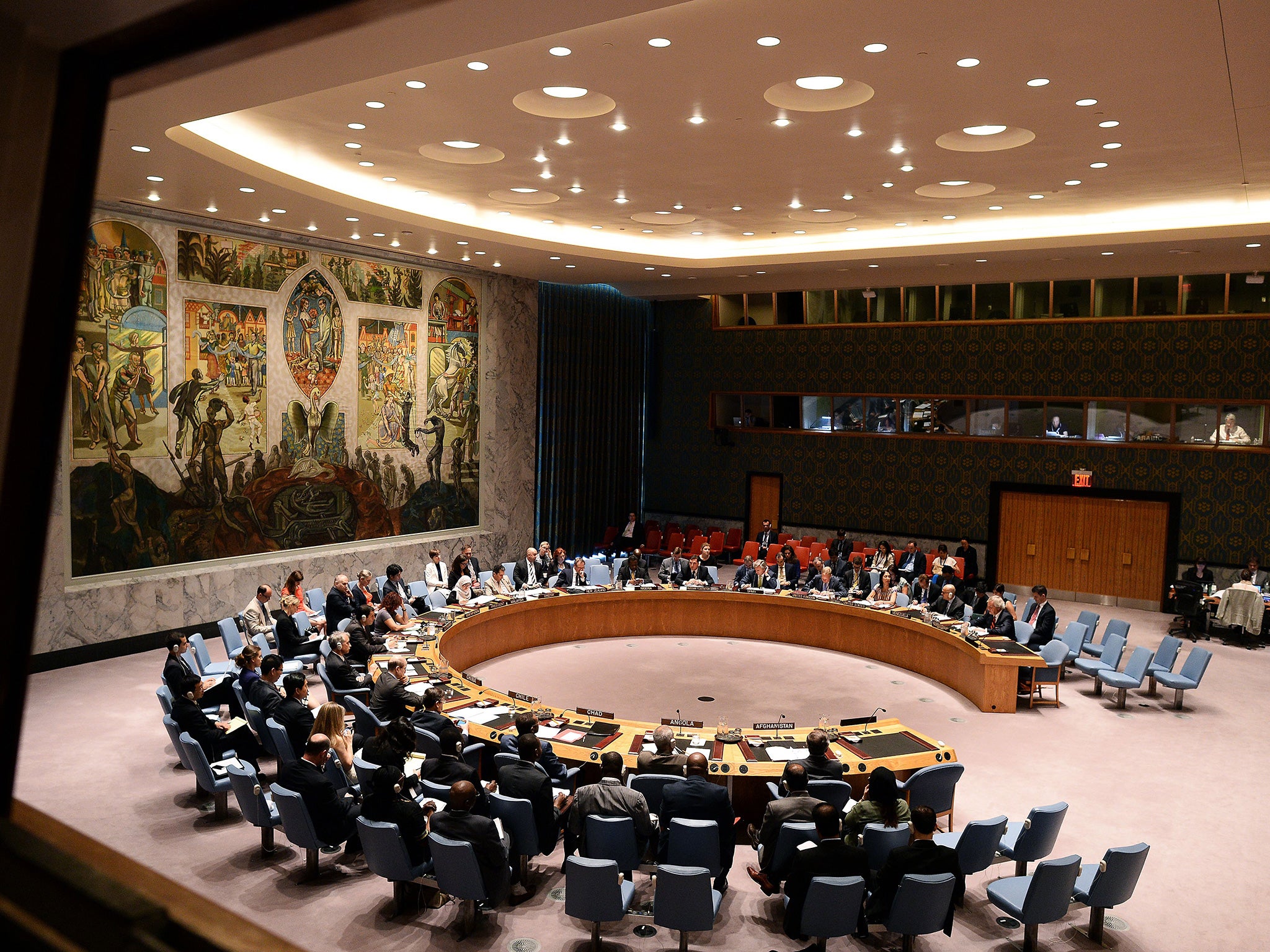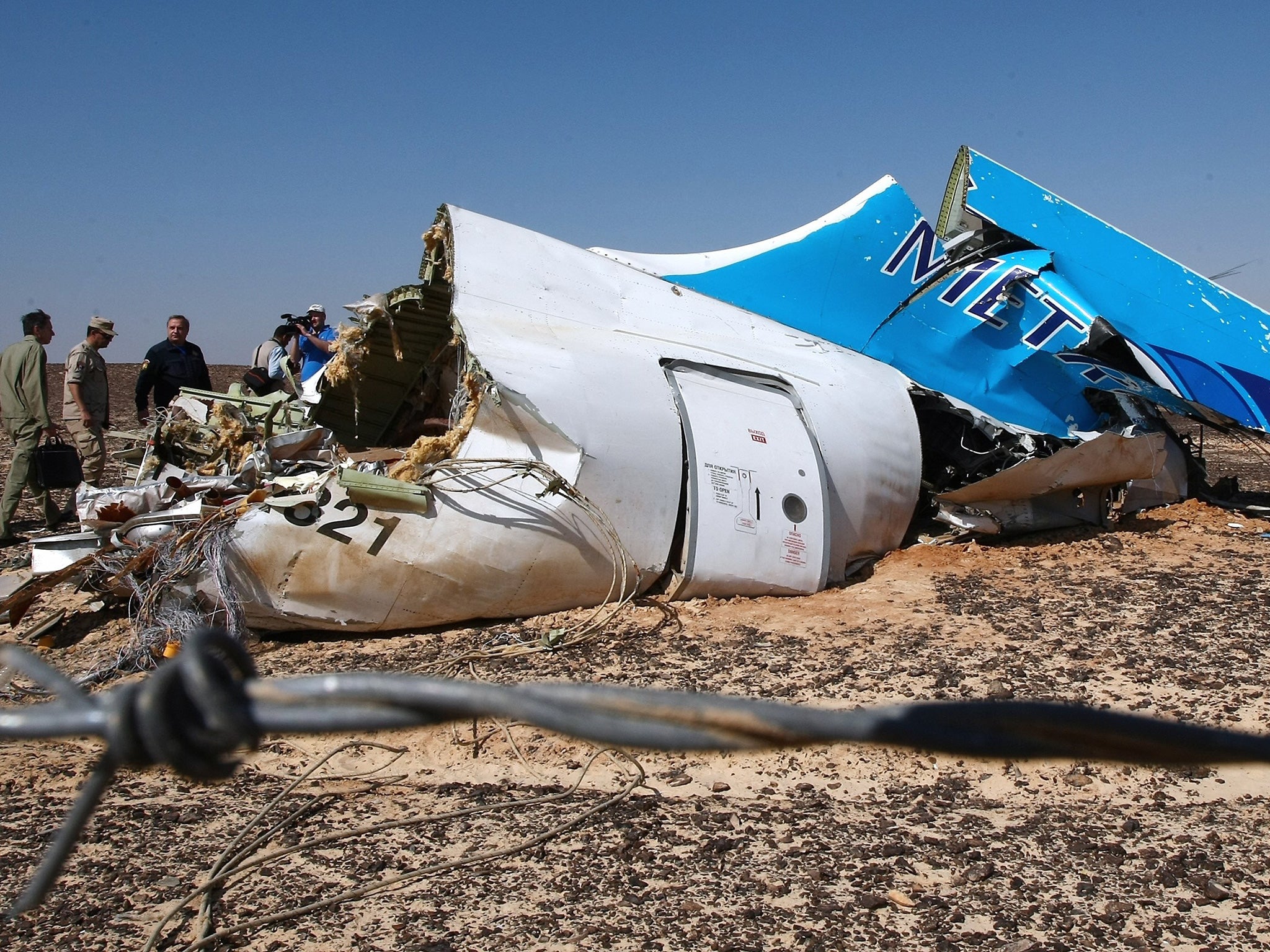Isis: United Nations Security Council resolution planned by world powers to declare war against group in Iraq and Syria
Exclusive: Draft resolution authorising ‘all necessary measures’ in Syria and Iraq could be adopted in days

Your support helps us to tell the story
From reproductive rights to climate change to Big Tech, The Independent is on the ground when the story is developing. Whether it's investigating the financials of Elon Musk's pro-Trump PAC or producing our latest documentary, 'The A Word', which shines a light on the American women fighting for reproductive rights, we know how important it is to parse out the facts from the messaging.
At such a critical moment in US history, we need reporters on the ground. Your donation allows us to keep sending journalists to speak to both sides of the story.
The Independent is trusted by Americans across the entire political spectrum. And unlike many other quality news outlets, we choose not to lock Americans out of our reporting and analysis with paywalls. We believe quality journalism should be available to everyone, paid for by those who can afford it.
Your support makes all the difference.World powers are poised to forge a single resolution at the United Nations Security Council to declare a common war against Isis and “eradicate” jihadists in Iraq and Syria, The Independent understands.
The attacks in Paris as well as the downing of the Russian jet over the Sinai Peninsula have galvanised a hitherto divided Security Council. And a new reality exists: with its alleged execution this week of a Chinese national, Isis has now slaughtered citizens of all five permanent Security Council members.
French officials said they were formally submitting a draft resolution to the Security Council, pushing aside a competing draft offered by Russia earlier this week. It could be adopted as early as Friday or over the weekend.
The French manoeuvre reflected confidence that its resolution would not provoke Russian or Chinese vetoes and would thus win approval.
The text, shared with the The Independent, calls on member states “with the capacity to do so” to “take all necessary measures, in compliance with international law, in particular international human rights, refugee and humanitarian law, on the territory under the control of Isil [Isis] in Syria and Iraq, to redouble and co-ordinate their efforts to prevent and suppress terrorist acts committed specifically by Isil… and to eradicate the safe haven they have established in Iraq and Syria”.
The resolution “is short, strong, and focused on one primary goal: the fight against the common enemy, Daesh [Isis]”, said France’s ambassador to the UN, François Delattre. “We intend to work with all our Security Council partners to achieve a swift adoption of this project, around which we hope the international community will come together.”
Passage of the French draft would mark a signal moment for the Security Council, where any resolution that explicitly endorses outside interference, particularly military interference, within the borders of a sovereign nation routinely encounters stiff resistance, usually from Russia or China. On Syria alone, the last time the council passed a unanimous resolution was in July of last year – on providing humanitarian aid.
The Russian version is only slightly amended from the one it submitted in September. At the time, it was spurned by London, Paris and Washington because it included provisions seeking the co-operation of governments in the region, including the regime of Bashar al-Assad in Syria.

There is still nothing to indicate that Moscow is about to cut Mr Assad loose. However, there was cautious optimism in the corridors of the UN that Russia could not contemplate blocking a resolution that condemned Isis, given the Paris attacks and the bombing of one of its own planes.
“There is a momentum to have a Security Council product that condemns the attacks not just in Paris but also Beirut and Sharm el-Sheikh and stresses the unity of the council and its desire to tackle the threat posed by Isis,” one diplomat said.
The draft resolution recalls that, by “its violent extremist ideology, its terrorist acts, its continued gross systematic and widespread attacks directed against civilians” and other crimes, Isis “constitutes a global and unprecedented threat to international peace and security”.
It would be passed, more-over, under the stewardship of Britain as current holder of the rotating Security Council presidency. While the Government would surely welcome a resolution as an important demonstration of world unity, it also believes that the legal basis for strikes against Isis already exists under the UN Charter’s provisions on the right to self-defence.
Adding to the new sense of urgency were reports attributed to US and Iraqi intelligence that Isis is attempting to create a unit to develop and deploy chemical weapons.
The French President, François Hollande, is to visit Washington next week and thereafter Moscow in the hope of creating a common coalition of powers against Isis. Persuading presidents Barack Obama and Vladimir Putin to set aside their differences will still be a difficult task. The US remains averse to joining hands with Russia in the light of its adventurism in Crimea and eastern Ukraine.
However, US Secretary of State John Kerry stressed Washington’s determination to defeat Isis quickly.
“We are going to defeat Daesh [Isis]. We always said it will take time,” he said. “We began our fight against al-Qaeda in 2001 and it took us quite a few years before we were able to eliminate Osama bin Laden and the top leadership and neutralise them as an effective force. We hope to do Daesh much faster than that and we think we have an ability to do that.”
Russia’s ambassador to the UN, Vitaly Churkin, suggested he saw common ground after closed-door Security Council talks late on Tuesday, before the tabling of the French draft. “One thing that was heard loud and clear in our discussions in the council is that there should be unity,” he said. “I don’t see it as a huge gap.”
Join our commenting forum
Join thought-provoking conversations, follow other Independent readers and see their replies
Comments